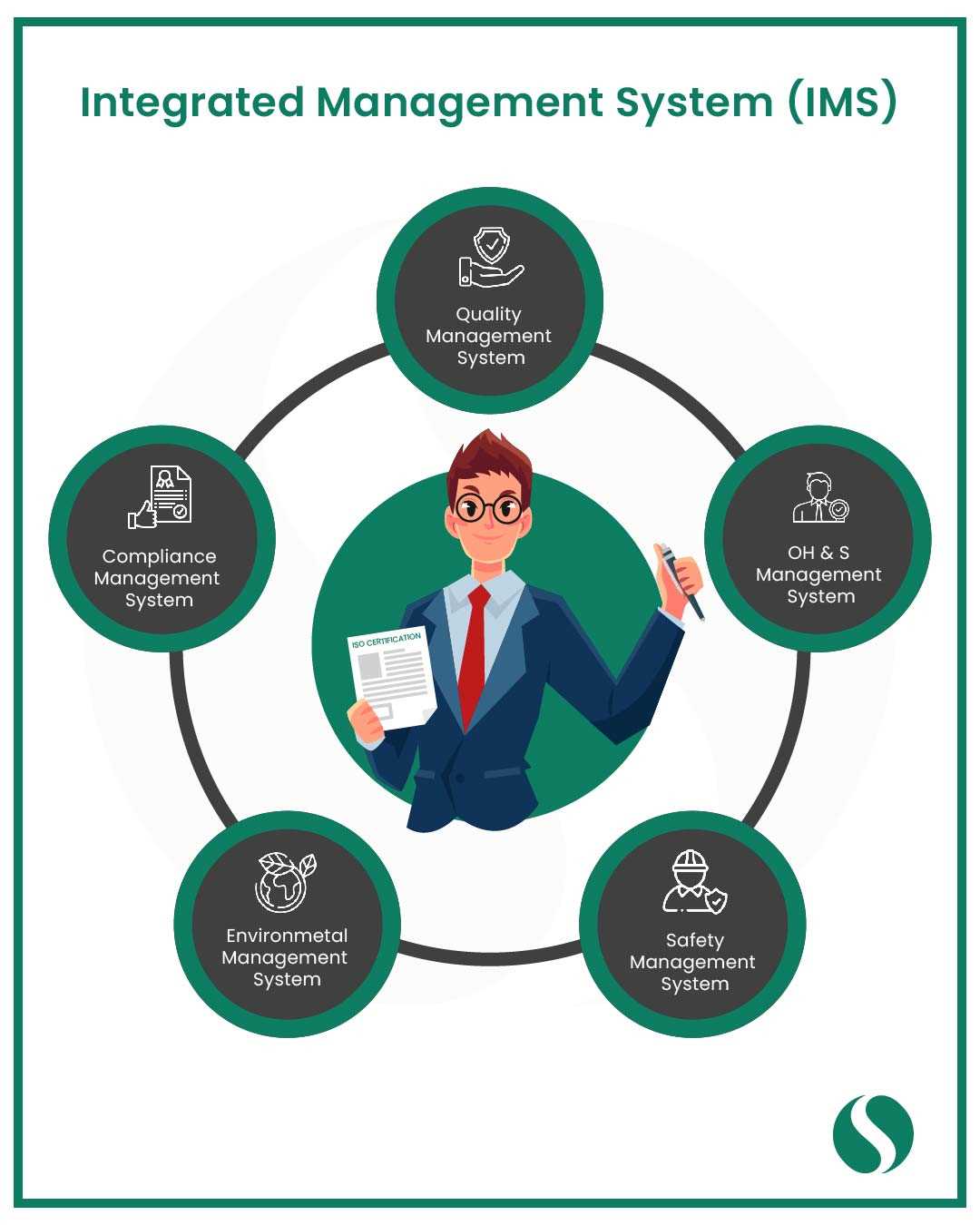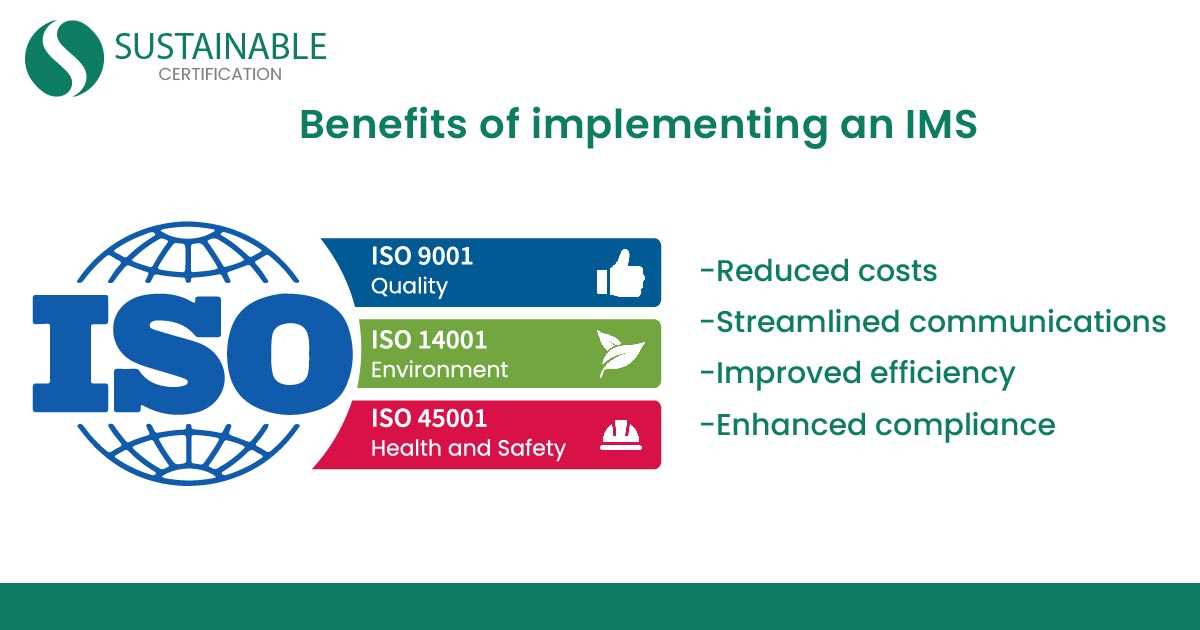IMS – Making compliance easier

An Integrated Management System (IMS) is a framed work that brings together various elements of an organization’s management system with the aim of providing a holistic approach to organizational improvement. The benefits of implementing an IMS can be far-reaching, including reducing costs and duplication of effort, streamlining communications, and improving efficiency. Implementing an IMS ensures compliance with multiple standards simpler and more efficient. In this blog post, we’ll take a closer look at how an IMS can help your organization meet the requirements of ISO 9001, ISO 14001, and/or ISO 45001.
What are the benefits of implementing an IMS?
There are many potential benefits of implementing an Integrated Management System, including:
Reduced costs – By consolidating duplicate efforts and systems, you can save money on things like training, documentation, and auditing.
Streamlined communications – Having a single point of contact for multiple management system elements can simplify communications both internally and externally.
Improved efficiency – An IMS can assist you to identify areas where your processes are inefficient and make improvements to increase productivity.
Enhanced compliance – Implementing an IMS makes compliance easier with multiple standards as well as local, state, and federal regulations.
What are the requirements of ISO 9001, ISO 14001, and ISO 45001?
ISO 9001 is a quality management standard that provides the framework on how to establish and maintain a quality management system in your organization. Some of the key requirements of ISO 9001 include:
- Developing a quality policy and quality objectives
- Establishing documented procedures for all aspects of your quality management system
- Evaluating customer satisfaction
- Performing Internal Audits
- Corrective and Preventive Action
- Management Review
ISO 14001 is an environmental management standard that provides guidance on how to establish and maintain an effective environmental management system in your organization. Some of the key requirements of ISO 14001 include:
- Determining the environmental aspects and impacts of your activities, products, services
- Identifying environmental objectives and targets
- Establishing Documented Environmental Policies
- Implementing Operational Controls
- Communicating with Stakeholders
- Training Employees
- Monitoring and Measurement
- Environmental Performance Evaluation
- Corrective and Preventive Action
- Management Review
ISO 45001 is a health & safety standard that provides guidance on how to establish and maintain a safe and healthy workplace in your organization. Some of the key requirements of ISO 45001 include:
- Risk assessment
- Hazard Identification
- Developing Control Measures
- Communication and Consultation
- Setting Objectives and Targets
- Implementation and Operation
- Evaluation and Maintenance
- Corrective Action and Continual Improvement
- Management Review
By implementing an Integrated Management System that includes elements from each of these standards, you can streamline your compliance efforts while simultaneously improving the overall efficiency of your organization. Are you interested in learning more about how an IMS could benefit your organization? Contact us today to speak with one of our experts (https://www.sustainablecertification.com.au/get-a-quote/)
An IMS can offer many benefits to organizations seeking to improve their efficiency while maintaining compliance with multiple standards. If you’re thinking about implementing an IMS in your organization, contact us today to learn more! [https://www.sustainablecertification.com.au/get-a-quote/]

